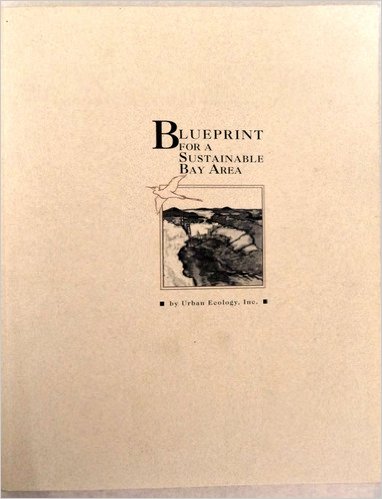
The Urban Ecology Journal
(Formerly The Urban Ecologist)
Urban Ecology’s unique perspective, which unites environmental health, social justice, and economic vibrancy, is the subject of articles and comment in every issue. Read by community activists, environmentalists, city planners, and elected officials throughout the world, Urban Ecology provides a venue for policy, ideas, and action about the natural, built, and inhabited urban environment.
Discover past articles below.


Green Building Materials
by Darrel Deboer Through the 1980’s, if one claimed to be an “environmentally-oriented” designer, people’s first reaction was to look up on the roof for the solar panels. The environmental impacts, toxicity, and origin of building materials were rarely...
Living in Metro Toronto
by Monika Jaeggi Known for years as one of the most narrow-minded and uncosmopolitan of the British colonial cities, Toronto has become the most culturally diverse city in the world since the 1960s as a result of rapid immigration. International surveys also identify...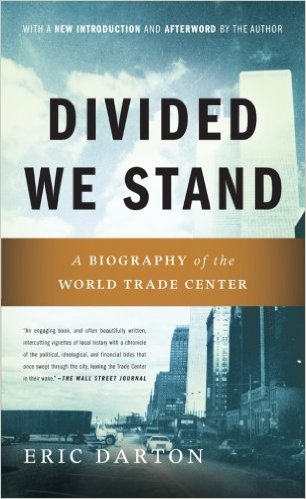
Divided We Stand: A Biography of New York’s World Trade Center
Divided We Stand: A Biography of New York's World Trade Center
San Diego Canyons Mix Coyotes and House Cats
Kevin Crooks A century of intensive urban development has destroyed most of the native sage scrub and chaparral habitat in Southern California — helping to create one of the world’s largest epicenters of extinction. Indeed, San Diego has more threatened...
Ecological Development In The United States
Santa Monica Sustainable Building Guidelines As part of its Sustainable City Program, adopted by the City Council in September 1994, Santa Monica is developing “Sustainable Building Development Guidelines” which may prove a useful model for other cities. A...
Communities Making Themselves Heard: Environmental Justice as a Means to Equity
by Enrique Gallardo Since the 1970s, groups of concerned citizens have mobilized in response to environmental degradation in their neighborhoods. The concept of environmental justice originally denoted a negative freedom: the right to live free of environmental harm....
Jobs and Environmental Stewardship in Taiwan
by Randy Hester The waters of Tsengwen River and Chi Ku Lagoon along Taiwan’s southwest coast are the scene of a controversy that is increasingly familiar around the world. Taiwan’s President Lee Tung Hui and many land speculators support a 7000-acre development...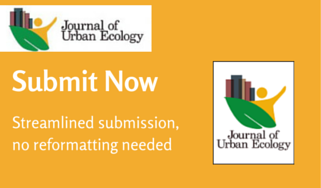
The Urban Ecology Journal Back Issues
Note: With this issue, we return to a seasonal designation. The first issue of each year will be called Spring, followed by Summer, Fall, and Winter. Visit our contact form to submit articles! Back Issues 2000 Spring — Designing for Transit and Community Tales...
Tunnels for Munich?
by Ron Widenhoeft In Munich, one of Germany’s most attractive cities, political controversy rages over whether the Middle Ring Road needs three new tunnels. By putting heavily burdened segments of the highway underground, advocates promise to enhance safety on the...
Combating Supermarket Flight In Los Angeles
By Michelle Mascarenhas Over the past 30 years, supermarket chains in Los Angeles have closed older, less profitable urban stores to build bigger and more modern markets in the suburbs. This trend follows the out-migration of middle-class households from the city....
Sustainable Development in the United States
Investment Firm Backs New Urbanism Columbus Realty Trust, one of the nation’s leading real estate investment firms, is backing “new urbanist”-style housing development. Stating that “Columbus is a proponent of ‘New Urbanism’,”...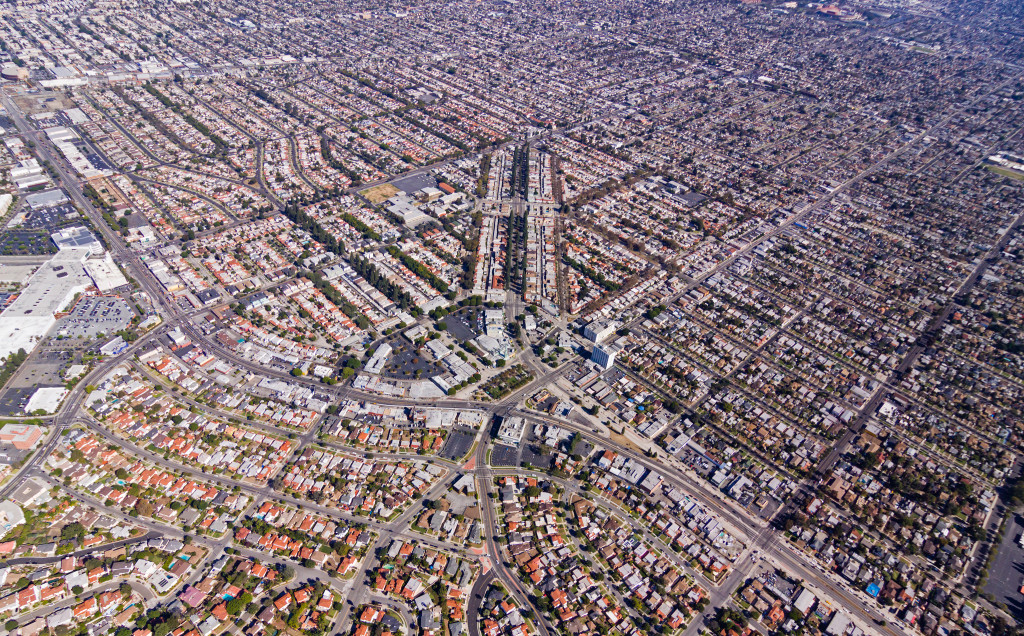
Wilderness in South Central Los Angeles?
Randy Hester Despite its well-deserved bashing for being utterly car-dependent, water-irresponsible and unsustainable, Los Angeles has borne some valuable precedents for keeping and recreating nature in the city. The No Oil fight to save the Santa Monica Bay, the Los...
Signs of Hope: Bay Area Success Stories
Edited by Stephen Wheeler Although the Bay Area is moving away from sustainability in many ways — in terms of automobile use, resource consumption, suburban sprawl, affordable housing and equity, for example — it is making progress in other areas....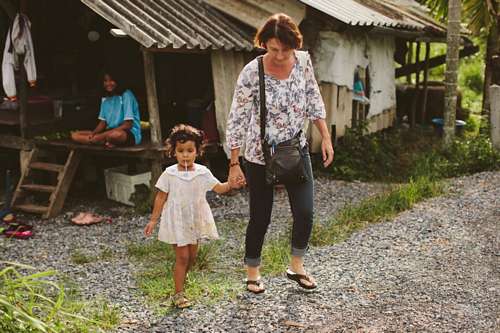
Fighting Urban Poverty Around the World
Fighting Urban Poverty Around the World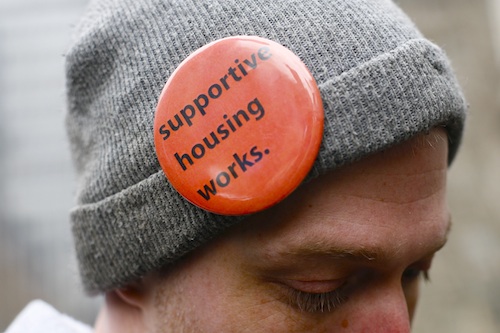
Including the Excluded: Supportive Housing
By Kate Bristol Consider these scenarios: a young man with a serious mental illness is ready to move from a group home to independent living in the community, but must find a housing unit he can afford on a $640 per month disability benefit. A women with two small...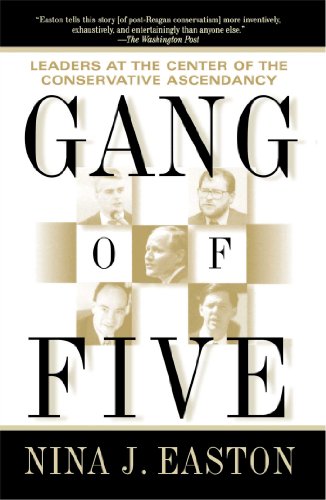
Gang of Five: Leaders at the Center of the Conservative Crusade
Gang of Five: Leaders at the Center of the Conservative Crusade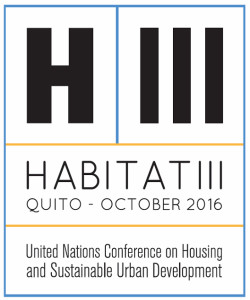
The Habitat II Conference: Moving Slowly Toward Sustainable Cities
by Stephen Wheeler During the first two weeks of June 1996 more than 12,000 urban planners, government officials and activists converged on Istanbul for the United Nation’s Conference on Human Settlements, also known as Habitat II or the “City...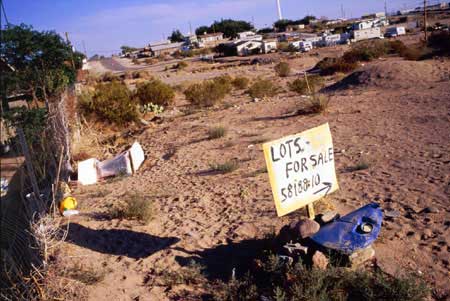
Texas’ Colonias: Squatter Settlements Become Affordable Housing
by Rachel Peterson Texas has witnessed an unusual pattern of development along its 2,000 mile border with Mexico. Colonias are unincorporated, “informal” rural subdivisions that usually lack water, wastewater service, and paved roads. There are an...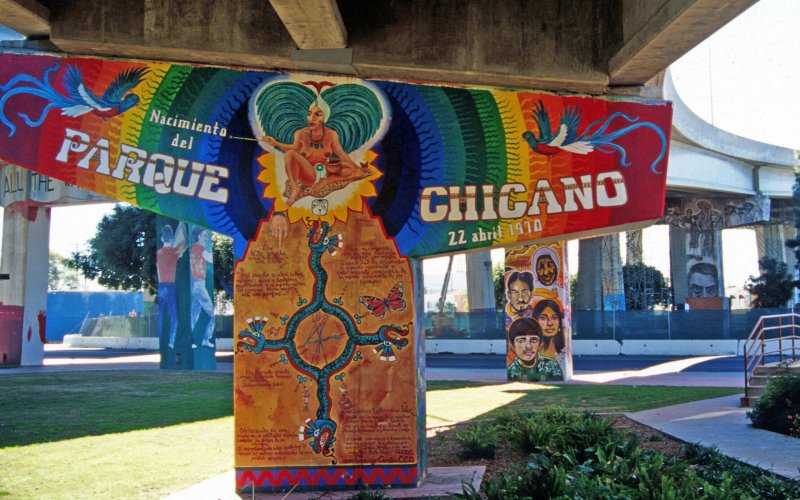
Addressing Inequity at Barrio Logan
by Michael Rios The public spaces of Barrio Logan, a low-income Latino neighborhood in San Diego, proclaim a unique Mexican and Chicano culture. The neighborhood faces the San Diego Bay towards Coronado Island and is thirteen miles from the Tijuana border. Physically...
Venice Confronts Population Loss, Environmental Problems
Venice Confronts Population Loss, Environmental Problems
A Brief Reading List On Urban Sustainability
We are often asked by those new to the subject to recommend some initial readings on urban sustainability. Following is a brief listing of some recent works. Many of these books have been reviewed in past issues of The Urban Ecologist, and several are available...
The Mysteries of Planning
The Mysteries of Planning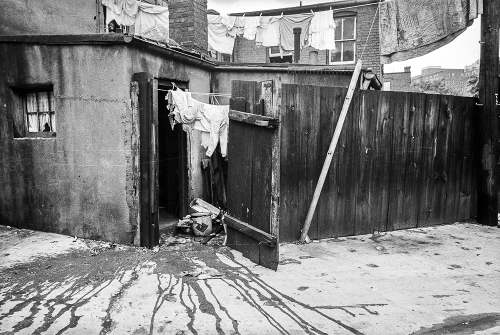
Alleys and Backyard Housing
By David Winslow Nestled among the back alleys of many existing neighborhoods is a large, fallow urban resource. Alleys and backyards, if reclaimed as sites for secondary dwellings, could sustain unobtrusive and affordable new housing with only modest increases in...
Global Urban Poverty Action Guide
Global Urban Poverty Action Guide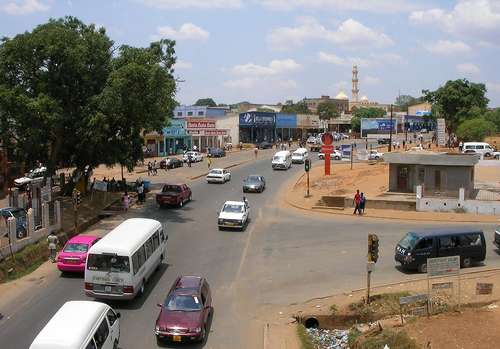
Malawi Graduates Turn Street People
Malawi Graduates Turn Street People
Sustainable Development Around the World
Waterfront Park in Venice A 1,400-acre urban park is taking shape on the site of a landfill on the lagoon facing Venice, Italy. Parco San Guiliano will contain 13 activity centers featuring boating clubs, marinas, museums, an aquarium, a marine biology research...

Havana’s Self-Provision Gardens
By Angela Moskow Urban agriculture is actively promoted in Havana, Cuba as a means of addressing the acute food scarcity problems of the “Special Period in Peacetime,” which developed when Soviet aid and trade were drastically curtailed starting in 1989....

Voting for Our Cities – A Look Back at Gore
By James B. Goodno Not too long ago, cities figured prominently in national politics. As a result, presidential candidates offered urban programs as a matter of course, and public investment flowed into housing, community development, transportation, social welfare,...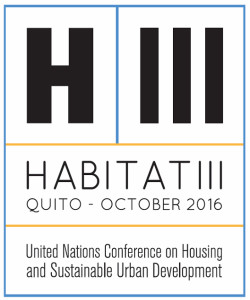

Habitat II Conference Tidbits
Participants at the Habitat II City Summit were snowed under by an avalanche of information describing urban development around the world. Following are a few tidbits and gleanings from the conference: The world’s urban population will rise from 1.54 billion in...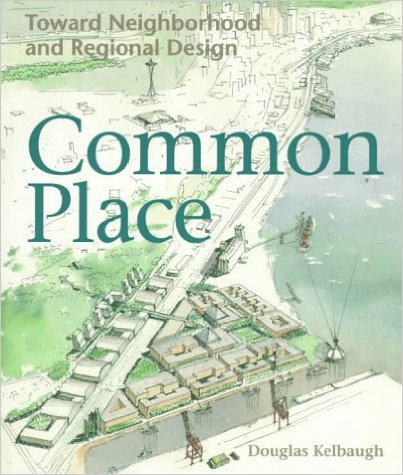

Common Place: Toward Neighborhood and Regional Design
by Douglas Kelbaugh reviewed by Stephen Wheeler One the most important challenges facing urban ecologists currently is to develop a language of urban design that integrates different scales — the building, site, neighborhood, city and region — in ways that...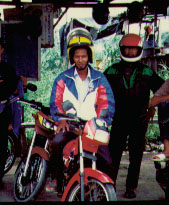

Bangkok’s Motorcycle Taxis
Bangkok's Motorcycle Taxis

Car Sharing Takes Off in Europe
by Conrad Wagner and Richard Katzev Car sharing is becoming popular in Europe, especially in Switzerland and Germany. In Switzerland a car sharing company, Auto Teilet Genossenschaft (ATG), already has more than 6,000 members, while a similar organization in Germany,...

A Letter from the President
I thought I’d take this opportunity to report to you from the front lines of sustainable development. Since September 1996 I’ve been working with Van der Ryn Architects and the Ecological Design Institute, where we get many opportunities to plan and design...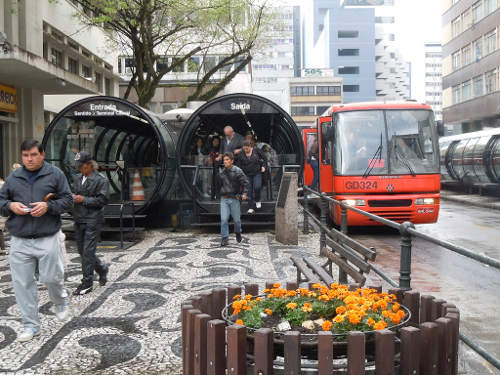

Curitiba: A Visit to an Ecological City
by Tim Alley Brazil is a country of many big cities, and most of them have their share of urban problems — poverty, overcrowding, sanitation. The city of Curitiba is an exception. In fact, Curitiba is known as “The Ecological Capital of Brazil.” I...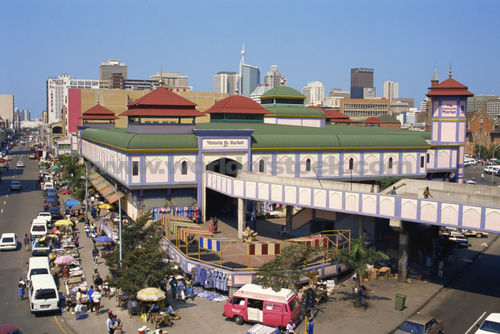

Saving Durban’s Medicinal Plants
Rebecca Koffman Every day at the Durban Station Market, street vendors do a booming trade selling plant muti (medicine) to the thousands of commuters who pour into the city-center. In this port city, in South Africa’s Eastern Province of Kwazulu-Natal, over 700...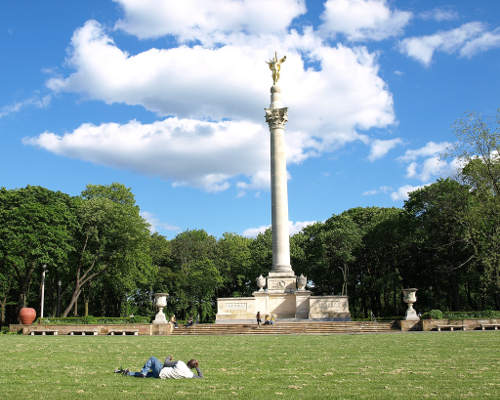

Restoring the Bronx Coastline
Paul Mankiewicz Today’s urban estuaries are lined with miles of linear bulkhead and seawall. But just a century ago, they had a highly varied coastline of beaches, marshes, rocky outcrops, bays, cliffs and creek mouths. Where could the immense amount of...

Arizona Voters Face Growth Choices
Arizona Voters Face Growth Choices

City Front Shorts
City Front Shorts


Sustainable Development Around the World
Clean Fuel Vehicles in Cairo To combat its dangerously high air pollution, Cairo is looking to convert its taxis, buses, and minibuses to compressed natural gas, which produces 86 percent less carbon monoxide and 83 percent fewer hydrocarbons than gasoline. Five...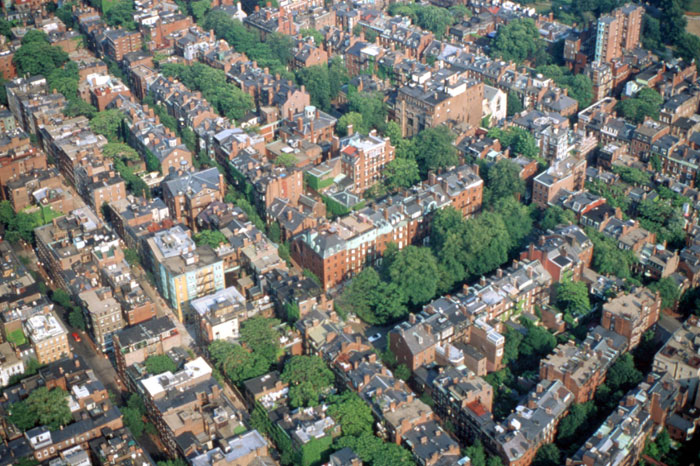

Cooling Our Cities
Lisa Gartland Scientific data show temperatures in cities all over the world, from Baltimore and Phoenix to Shanghai and Tokyo, are steadily increasing by one half to one degree Fahrenheit every ten years, and the primary cause isn’t global warming. Cities...

Remember the Alamo and the World’s Tallest Man, Too
Remember the Alamo and the World's Tallest Man, Too

Regional Polarization and Tax Sharing
by Myron Orfield The forces of polarization — the push of concentrated poverty and the pull of concentrated resources — operate throughout metropolitan regions. Because the dynamics are regional, only a regional approach can change them. There is little that...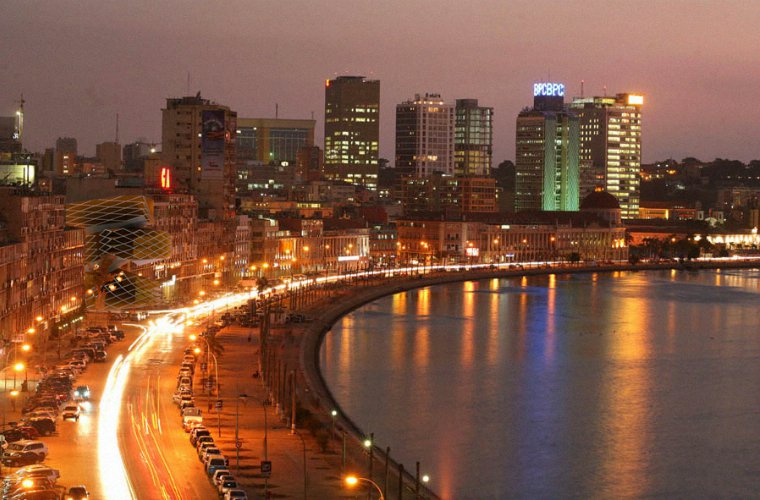

Angola Project Wins Planning, Architecture Contest
Angola Project Wins Planning, Architecture Contest

Ecological Development Around the World
Germany Moves Toward an Eco-Economy Germany already leads the world in recycling, with its requirement that manufacturers take back their packaging and a system in which all items marked with a Green Dot are picked up by a recycling consortium paid for by business....
